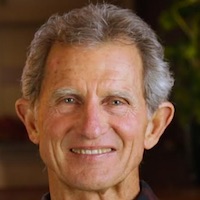Virtue, self-control, and other frightening ways to regain health.
If I could grant us all one wish, I would grant us the power to do the good we desire. Ordinary human good.
To eat like an animal, responsive only to the voice of hunger. To move with the natural grace born of harmony with the earth. To rest when tired. For our thinking to be passionately wed to the truth. For our belief that good will triumph to be unshakable. To have hearts that throb with love so strong, so pure that all lesser desires burn away—drowned in the light of our passion for good. And to do unto others, to love others, as we love our own selves.
Look, it is true. We innately know what is good for us. We just can’t or won’t or don’t do it. And if we don’t do what is good for us, what possible hope can we have to live the lives we want?
Everybody gets this. Eating poorly, not exercising, not getting sleep, and being anxious and afraid are bad for us. Somehow this will break us down. We know this in our guts to be true.
Yet most of us haven’t got a clue what causes our illness. We have been entrained into the cultural notion that sickness and health are highly complicated issues that require a complex, sophisticated understanding of “science”⏤of biochemistry and other fields of knowledge largely unintelligible to most persons. In short, we are disempowered.
We believe ourselves to be incapable of understanding what needs to be understood in order to heal ourselves. While I respect the contributions of conventional medicine, my experience as a Naturopathic doctor has proven a patient’s ability to understand the causes of their illness and exercise their self-healing power time and time again.
Whether we initially focus on eating, movement, rest, sick emotions or sick relationships, all illness stems from the common roots of kindness and understanding. A lack of these two virtues are the fundamental, core causes of illness. And illness asks us precisely to grow them⏤to develop our kindness and compassion towards ourselves and our understanding of what actions are really kind and which are not.
Kindness is gentle as a dove—sweet, caring and accepting. It is also passionate. Simultaneously, Love can be ruthless, even furious, in defending the good and annihilating what harms us.
We find a lack of compassion for ourselves in how we treat the parts of ourselves that we don’t like, or perceive as weak, stupid, selfish or afraid. These are the parts of ourselves we do not understand, for we have power over that which we understand. A lack of wisdom or understanding manifests as a failure to recognize the actual causes of goodness and health.
If we sincerely want to get well, we will ultimately be led to the inner work of developing virtue—of becoming stronger, wiser and kinder; of growing in personal power and our ability to do good; the work of being an instrument of goodness itself and performing the noble actions that cause only health.
I define virtue as simply doing what is good and right. We can always work to make our actions a closer expression of what we believe to be good and right. This is an art. Maybe the ultimate human art⏤sculpting ourselves into beings who in every way expresses truth, love, beauty and goodness by cultivating our bodies, minds and relationships as living expressions of those virtues.
The question is: how do we do this? How do we get to the point where we stop doing harm to ourselves and others, and finally do what truly benefits all?
This is not a rhetorical question. I consider it the most important question of our lives. In my work as a physician, this has become quite clear: the stakes are sickness or health, life or death.
What’s it gonna be?
~
Author: Dr. Charley Cropley
Images: Author’s Own/ with permission Penelope Dullaghan on Instagram
Editor: Khara-Jade Warren


 Share on bsky
Share on bsky





Read 9 comments and reply